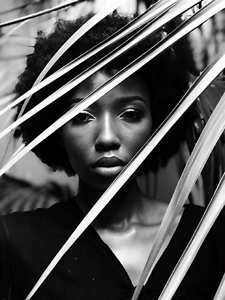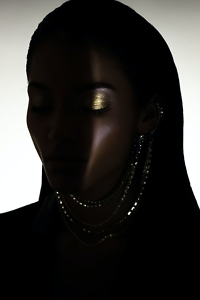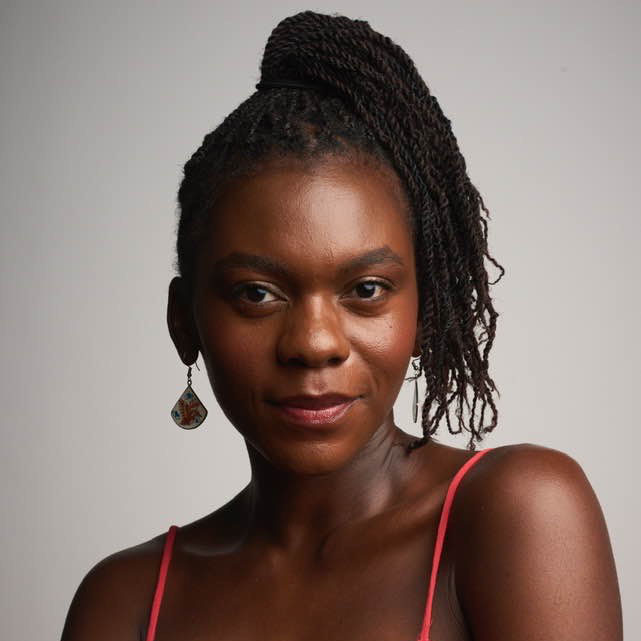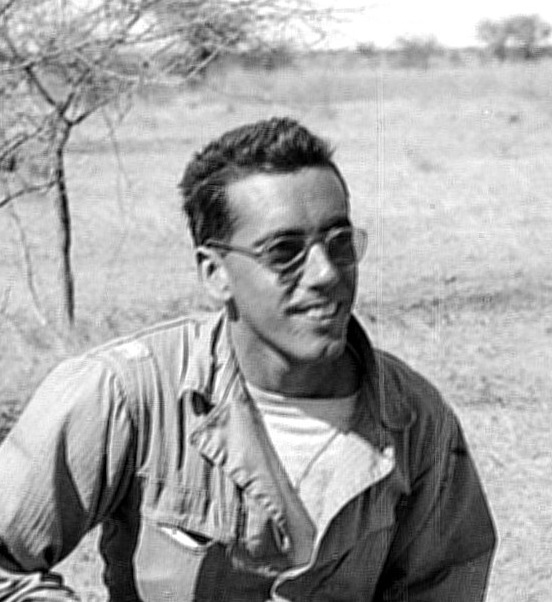Layers
When love isn’t love
I made a fool of myself after the break-up. I knew it was a terrible idea to call him, but I hoped, helplessly, that he would be kind.

“I’m so sorry to be doing this to you,” I stammered when he answered. “I know you’re in a new relationship. I know this is inappropriate…but I need your help.”
He was so quiet that all I could hear was his gentle breathing.
“How did you get over me?” I asked quiveringly. “I’m trying to forget you, but I can’t.”
His momentary silence felt like a lifetime and evoked a bout of fear within me. “You just have to find someone new,” he said finally, chuckling lightheartedly, trying to diffuse the somber mood. “Go out there and find someone taller, more interesting, more handsome than me.”
“Is that what you did?” I asked. “Did you find someone smarter, prettier…blacker than me?”
In many beautiful moments of our relationship, I forgot about the social construct that sometimes stood dauntingly between us. He would just be the beautiful man I was falling recklessly in love with: tall and well built, with a thick mop of shiny, dark hair and eyes that teetered between light brown and green, depending on the mood of the sun. The man who played me beautiful songs on his guitar, made me magnificent pancakes on the weekends we slept in, wrote me beautiful poems on his typewriter, watched me watch his favorite stand-up comedy so he could see which jokes made me laugh.
He made it easy. There was something different and beautiful about him. He understood so much. It was a relief to not have to explain it all. It gets exhausting having to educate or provide insight into what it means to be black in America. I was at peace with him.
I’ve encountered my fair share of clueless guys over the years. l dated one who, while holding me in his arms, told me that his ideal woman was a Scandinavian model. I could aspire to be smarter, more beautiful, more cultured, but I couldn’t possibly aspire to be the pale, blond-haired, blue-eyed woman he ended up marrying.

“You were his black belt,” my friend Scott explained to me when I recounted this incident, months after the demise of that relationship. “That’s when white guys date a black girl for the experience.” Scott was very surprised and skeptical when I told him I mostly got approached by white men. When it later became apparent that he was interested in more than friendship, I asked him if I was his black belt.
Given that history, it felt good to be with someone who was informed about racial justice. Someone who didn’t try to play devil’s advocate the millionth time another innocent black person was killed by a cop. Someone who understood the misrepresentation and underrepresentation of minorities in popular culture and was unsettled by it. But getting to know a person is like digging through the core of the Earth. Sometimes you find interesting and complex layers; other times, you hit an empty cavity that’s waiting to devour you whole.
The first time we took a selfie, it was because he wanted to send a picture of me to his parents. I asked him if they knew I was black.
“Oh, my parents wouldn’t have a problem with us,” he reassured me. “They know I date black girls.”
I found that statement weird but didn’t quite process it.
As we got to know each other more, I delved deeper into this subject. He was only attracted to black women, he explained. Even though he grew up in a small, predominantly white town in Tennessee, he loved black culture and immersed himself in it as best as he could. He had a degree in jazz. He educated himself on black history and kept up with contemporary black thought leaders. He could rap along to Kendrick Lamar effortlessly.
“I hate how black beauty is underappreciated in American culture,” he said. “That’s why I’m so drawn to black women. I just want them to know they’re beautiful.”
“So ultimately, you’re dating me because I’m black?”
He was taken aback by my question — shocked that I would suggest that his preference for black women was anything but a compliment.
“You’ve only dated white guys,” he challenged. “So how is that different from me dating black girls?”
“Well, I don’t seek out white men. If I were back in Kenya, a predominantly black country, and only dated white men, then that would be more similar to what you’re doing.”
“I’m not gonna apologize for having a preference,” he asserted. “Some guys like blonds, some like brunettes…everyone is allowed to love who they want.”
I didn’t want to carry on this argument when I wasn’t sure what I was trying to say. Maybe he was right. Maybe I was being closed-minded. I cared about him deeply, so I tried to understand his perspective, but to no avail.
We were walking together one evening, when I noticed him checking out a pretty woman who walked past us. I had noticed her first and expected his reaction — not because she was attractive, but because she was black. I called him out on it, and we laughed about it. But later, I felt sick at the realization that I had become hyper-conscious of black women around him.
I couldn’t pretend that I wasn’t disturbed when his close friends, whom I had met a few times, didn’t realize that he had taken a different black girl to a wedding that we were supposed to attend together. We were on a break around the halfway mark of our relationship, for unrelated issues, so he took his rebound instead. When we got back together, he found it all incredibly amusing.
“My friends are so racist,” he joked. “You don’t look anything like her!”
Weeks later, when we went out for lunch with his friends, I sat there, feeling like an impersonal being to them.
He always came back to the same point: how much he hated the way black women’s beauty was underrated in America culture and that his preference was just his way of appreciating black beauty. But the more he said it, the more it sounded like he was trying to fix this social failure by dating one black woman at a time. Like he thought he was doing something noble by dating black women.
“Sometimes I don’t think you realize how lucky you are,” he said to me once, deeply offended by my ever-growing doubts about our relationship.
In the end, I initiated the break-up. Even though I was in love with him, it had become clear that we had incompatible life goals, among other things. I knew this break-up was going to be very painful, but I didn’t anticipate how desperate I would become, when just a couple of months later, he was leaving Nashville to be with a new girl.
I cringe when I remember that period of my life. I didn’t need him to tell me he had moved on to another black woman. It wasn’t my business, but I couldn’t let it go. So, like an idiot, I looked her up on Instagram. In one photo, she was wearing my favorite hairdo: long braids wound up in a bun on top of her head. She was also wearing my favorite shade of lipstick: a bold red that I instantly recognized as Ruby Woo from M.A.C.
When you’re a minority in America, sometimes you find yourself in situations that conjure unfamiliar emotions, which are easy to dismiss as dramatic, sensitive, paranoid, or crazy. If you’re lucky, you might stumble upon other people who have shared your experience and can give your heart the vocabulary it needs to find peace. On the questionable love of blackness by a non-black lover, the poet Nayyirah Waheed writes:
…this was never a relationship.
i have no idea who you are.
and i laugh
incredulous and insulted.
at the notion
that
my blackness could ever be your first love…
The title of the poem is “Fetish.”

Copyright © 2020 by Sally Amkoa. All rights reserved. Sally Amkoa is a writer and an avid storyteller at Tenx9 Nashville Storytelling. She has a B.A. in economics and an M.S. in business analytics from the University of Cincinnati. She is a native of Kenya but now calls Nashville home.


